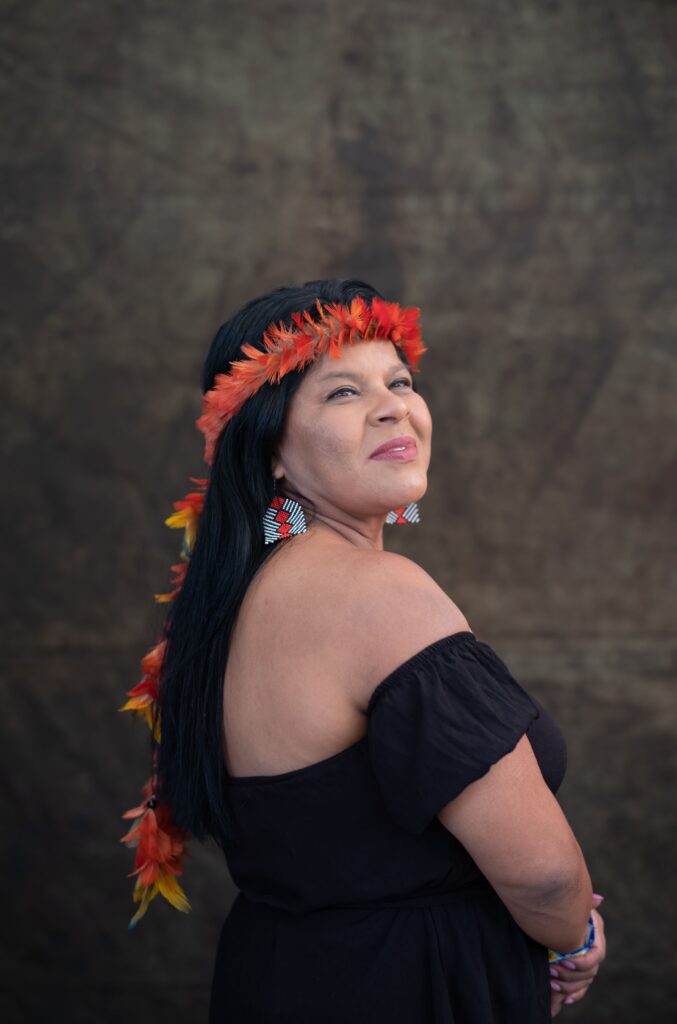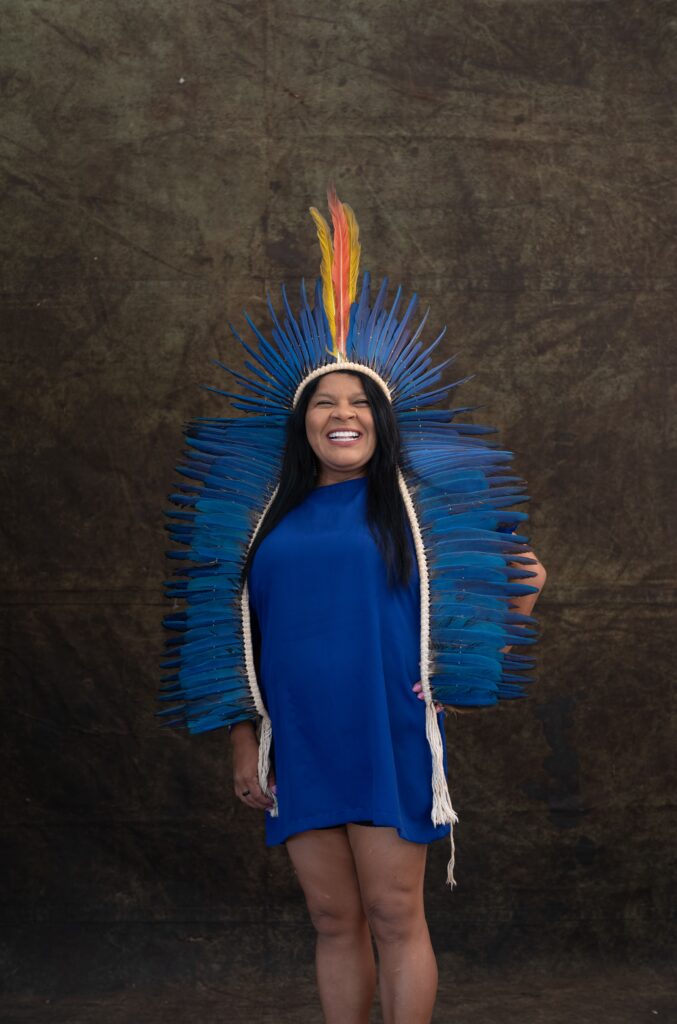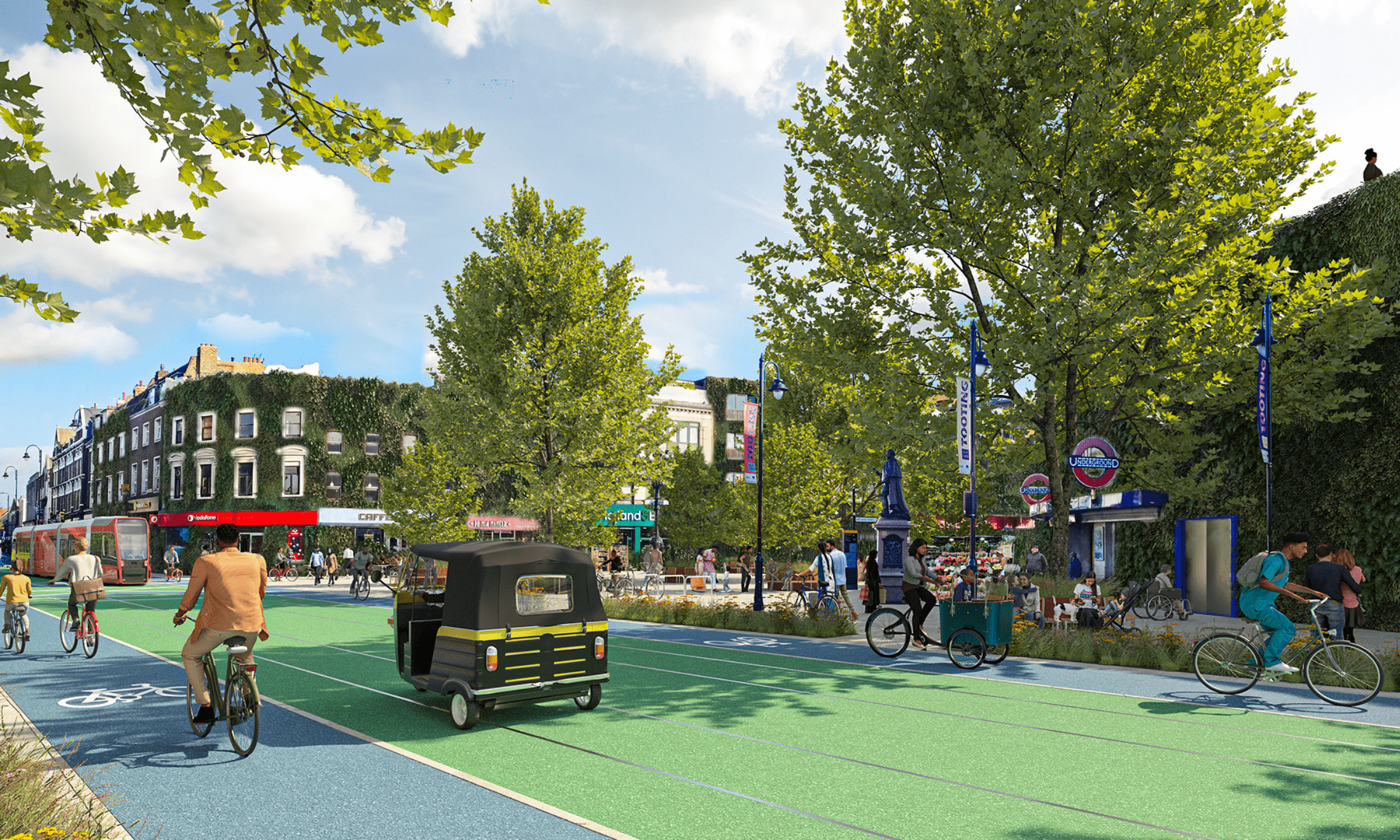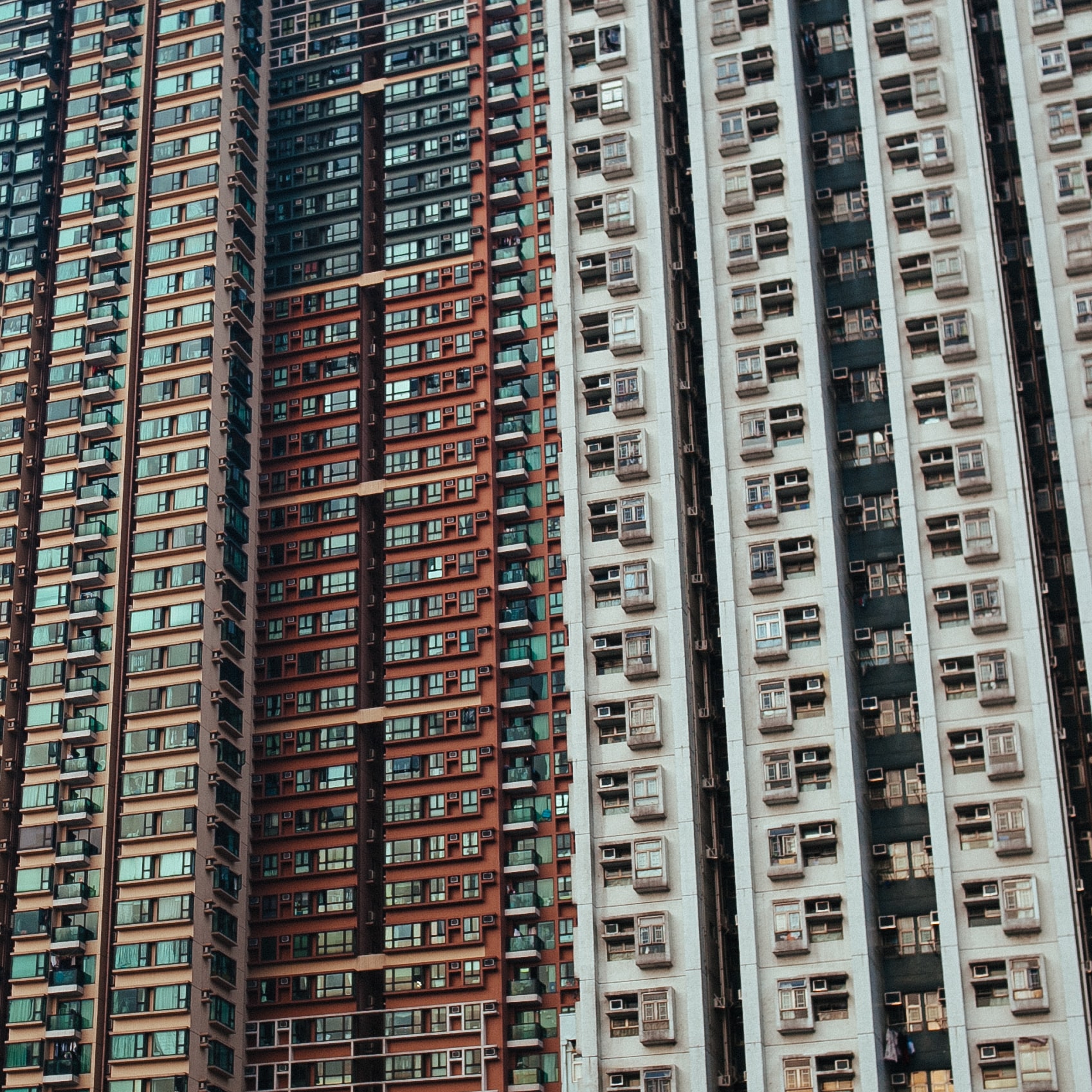
All photography by Alice Eady and Eric Terena
Sônia Guajajara: ‘Electing Indigenous candidates means electing environmental protection’
São Paulo’s first Indigenous congresswoman speaks to gal-dem about representation, Brazil’s struggle over land rights, and the country's polarised presidential election.
Nicole Froio
28 Oct 2022
Much of the world already knew Sônia Guajajara’s struggle for Indigenous rights and conservation of the environment was essential. This year, Guajajara was featured in Time magazine’s 100 Most Influential People, and was described by her 2018 presidential running mate Guilherme Boulos as “an inspiration for millions of Brazilians who dream of a country that settles its debts with its past and finally welcomes the future”.
In the 2022 Brazilian election, Guajajara, 48, is finally being recognised for her activism in the city she lives in; she is the first Indigenous woman in the state of São Paulo to be elected into Brazilian congress, and gained the most votes in the country for an Indigenous congressperson in this election, with 156,695 votes. Guajajara, who has been involved in Indigenous rights activism since 2003 when she joined the Group of Organizations and Articulations of the Indigenous Peoples of Maranhão (Coapima), says her victory shows how much the people understand the importance of preserving the Earth.
“I’m feeling recognised for my journey of struggle and also feeling the urgency of having more Indigenous representation in congress,” the newly elected congresswoman tells gal-dem. “The people have understood that electing Indigenous candidates means electing environmental protections, which is helping us advance even more every election cycle.”
“We have to prioritise what’s best for the country, and what’s best for the preservation of life”
The extreme rightwing government of President Jair Bolsonaro has consistently adopted policies that threaten Indigenous rights to land demarcation, and efforts to preserve the Amazon forest. Across the country, illegal land grabbing, logging, mining and poaching in Indigenous lands increased by 137% in 2020 from 2018, the year before President Bolsonaro took office, according to the Indigenist Missionary Council. A Human Rights Watch report claimed the Bolsonaro government “has undermined the government agency tasked with protecting [the rights of Indigenous peoples], issued regulations that are harmful to Indigenous people, and halted the recognition of their traditional lands.” Guajajara has consistently protested against the Bolsonaro government and now, she will continue to do so in congress.
Guajajara’s life history is full of firsts. Born to parents who could not read, she was the first in her family to get a higher education. She was also the first Indigenous woman to run for vice president in 2018, with an explicitly anti-capitalist, pro-Indigenous and feminist agenda.
Her launch into politics comes from a powerful history of activism. In August 2017, Guajajara organised the protests that pressured the Brazilian government to reinstate a protected area of 4.6m hectares in the northeast of the Amazon. Michel Temer’s government planned to abolish the reserve, known as the National Reserve of Copper and Associates (Renca), which would have allowed for further deforestation and exploration of the Amazon. This success confirmed Guajajara’s status as a veritable land defender who has used social media to bring international attention to her and her country’s struggles. Later that year, she was invited on stage by Alicia Keys at Rock in Rio 2017 to speak about the importance of preserving the environment.
Now, she is the first Indigenous woman to be elected into congress in the state of São Paulo, a region that has historically voted for conservative and centre-right candidates.


Yet she is adamant that her win is collective. Indeed, Guajajara’s candidacy is part of a broader project by the Articulation of the Indigenous Peoples of Brazil group (APIB) that sought to increase Indigenous participation in the elections to fight back against legislation that promote deforestation and violate Indigenous demarcation – a process that ensures Indigenous rights to their sacred land and protects them from predatory miners, loggers, landgrabbers and poachers who seek to encroach on Indigenous territory for profit. Guajajara, who was a part of the APIB leadership from 2013 to 2021, says the group’s Aldear a Política (which can be loosely translated to “Making Politics Collective”) project is about occupying positions of power and making Indigeneity more visible and accepted in political spaces.
In an open letter to the Indigenous peoples of Brazil, APIB called for “the election of a presidential candidate that is committed to the struggles and rights of the oppressed and excluded majorities” and for the “election of our candidates at the state and national levels”. Guajajara’s campaign focus was in advocating the defence of the Amazon and the Atlantic Forest; rights for minorities; respecting diversity in ways of living – here, Guajajara wants Indigenous people’s societies to be protected – and reconstructing Brazil after Jair Bolsonaro’s government.
“Bolsonaro’s tenure has not only been a tragedy for Brazil, it has been a global tragedy”
According to Guajajara, taking an Indigenous holistic approach to the world into institutional politics can change how society views human connection to nature and ancestry. “We want to make politics more collective and this goes beyond occupying spaces of power,” Guajajara says. “We want our ways of living to be respected, we want to show our connection to ancestrality and valorise the cosmovision Indigenous peoples have toward nature, rejecting this highly predatory economic system we have and guaranteeing a more sustainable relationship with nature and the environment.”
The congresswoman was originally born in Araribóia Indigenous Land located in the Amazonian rainforest in the northeastern state of Maranhão, to a family of the Guajajara ethnicity. She left home at 15 to pursue an education in a Minas Gerais boarding school, sponsored by the National Indigenous Foundation (FUNAI). In adulthood, Guajajara gained a BA in Portuguese and a diploma in nursing in Maranhão’s State University.
Though Indigenous representation in Brazilian congress is still small – only seven congress people currently self-identify as Indigenous, and not all of them advocate for the preservation of the environment – Guajajara’s election marks a win for Indigenous political representation that seeks to preserve land and push for Indigenous demarcation rights. Indigenous people account for about 0.4% of the Brazilian population.
Guajajara recognises the next four years will be full of obstacles for pushing through pro-Indigenous rights policies because the majority of congress is conservative. In a study of the 2022 elections, the NGO Instituto Socioambiental determined that the percentage of congress people that advocate for the preservation of the environment fell from 50 to 30%.
“These next few years will be very challenging,” Guajajara says. “We have to challenge the conservative majority and prioritise what’s best for the country, and what’s best for preservation of life. Just because they are a majority, it doesn’t mean they have the best policy proposals, so we have to be there to challenge them with the force of the people and the liberatory movements so we can push our agenda through.”
While Brazil goes through one of the most polarised electoral processes the country has ever seen, Guajajara refuses to consider what another four years of extreme-right governing by Jair Bolsonaro might look like, making clear that she expects the leftist candidate, Luíz Inácio “Lula” da Silva to win in the second round of the presidential elections on 30 October. “I’m not even considering a Bolsonaro win as a possibility,” she says. “We all know what his government was like, his tenure has not only been a tragedy for Brazil, it has been a global tragedy.”
Climate change activists and scientists across the world have been sounding the alarms on Bolsonaro’s callous policies toward the environment since he started his tenure in 2019. Home to the largest and most biodiverse rainforest in the world, Brazil holds an important place in environmental policies globally – and Bolsonaro has consistently threatened to exit global efforts to tackle the climate crisis like the Paris Agreement.
It may be that Guajajara’s prediction of a Lula victory is correct: the candidate she is supporting won the first round of the election and has been leading the polls for the second round. Guajajara believes that an eventual Lula government will be conducive for pushing through Indigenous land demarcation policies.
“I was elected by the people, so I have the responsibility to return to a dialogue with the executive branch to go back to demarcating Indigenous land which is something that was totally stopped by the current government,” she says. “I also want to create public policies that guarantee the preservation of the environment – that’s one of my priorities.”
Even with all the difficulties of a conservative majority in congress, Guajajara says she is bringing the spirit of Indigenous land defenders into the Brazilian government. “When I bring my body into congress, I’m bringing in the territory we are defending,” she tells gal-dem. “We don’t separate our bodies from the environment, we are one.”
Guajajara hopes to continue to have international support for her activism, as she believes this can go a long way in affecting Brazilian preservation policies. “I’m always counting on the support of the Brazilian population and the international community,” she says. “This support is essential so we can push for Indigenous environmental humanitarian policies that don’t only benefit us, but benefit the whole planet and all ways of living.”
The contribution of our members is crucial. Their support enables us to be proudly independent, challenge the whitewashed media landscape and most importantly, platform the work of marginalised communities. To continue this mission, we need to grow gal-dem to 6,000 members – and we can only do this with your support.
As a member you will enjoy exclusive access to our gal-dem Discord channel and Culture Club, live chats with our editors, skill shares, discounts, events, newsletters and more! Support our community and become a member today from as little as £4.99 a month.

Britain’s policing was built on racism. Abolition is unavoidable

How Pakistan’s Khwaja Sira and transgender communities are fearing and fighting for their futures

Their anti-rape performance went viral globally. Now what?







